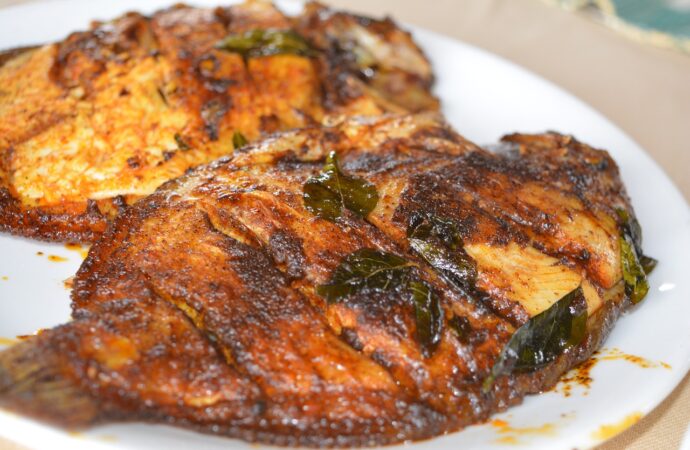Introduction
Kerala, the picturesque coastal state in southern India, has long been celebrated for its vibrant culture, lush green landscapes, and delectable cuisine. Among its culinary treasures, non-vegetarian dishes hold a special place. In a recent survey conducted by the Ministry of Statistics and Programme Implementation for 2022-23, Kerala emerged as the leader in non-vegetarian food consumption across the country.
The Numbers Speak
- Rural Kerala: People in rural Kerala allocate 23.5% of their food expenditure to non-vegetarian items. The aroma of freshly cooked fish curry wafts through quaint villages, where families gather around traditional banana leaf meals.
- Urban Kerala: Urban residents in Kerala spend 19.8% of their food budget on non-vegetarian fare. From bustling seafood markets to trendy restaurants, the love for non-vegetarian delicacies is palpable in cities like Kochi and Thiruvananthapuram.
A Culinary Melting Pot
Kerala’s culinary landscape is a delightful blend of flavours influenced by historical trade routes, cultural exchanges, and local ingredients. Here are some iconic non-vegetarian dishes that define Kerala’s food scene:
- Malabar Biryani: Fragrant rice layered with succulent pieces of chicken or mutton, aromatic spices, and fried onions—a true celebration of flavours.
- Fish Curries: From spicy red fish curries (meen mulakittathu) to tangy tamarind-based ones (meen puli), Kerala’s coastal cuisine revolves around fresh catch from the Arabian Sea.
- Beef Dishes: Kerala’s beef preparations, whether spicy beef fry or slow-cooked stews are beloved by locals and visitors alike.
Promoting Safe Food Practices
As Kerala continues to celebrate its culinary heritage, promoting awareness about food safety, hygiene, and sustainable practices is essential. Here are some key takeaways:
- Quality Matters: Consumers should be vigilant about the quality of meat and fish they purchase. Regular inspections of markets and eateries ensure adherence to hygiene standards.
- Storage and Handling: Proper storage and handling of non-vegetarian ingredients are crucial to prevent foodborne illnesses. Educating households and restaurant staff is essential.
- Sustainable Choices: Kerala’s love for seafood should be balanced with sustainable fishing practices. Supporting local fishermen and opting for responsibly sourced seafood is vital.
Conclusion
Kerala’s passion for non-vegetarian food is deeply rooted in its history, culture, and geography. As food enthusiasts, let’s savour the flavours responsibly, appreciating the rich tapestry of tastes that Kerala offers.
 Food Manifest
Food Manifest 














